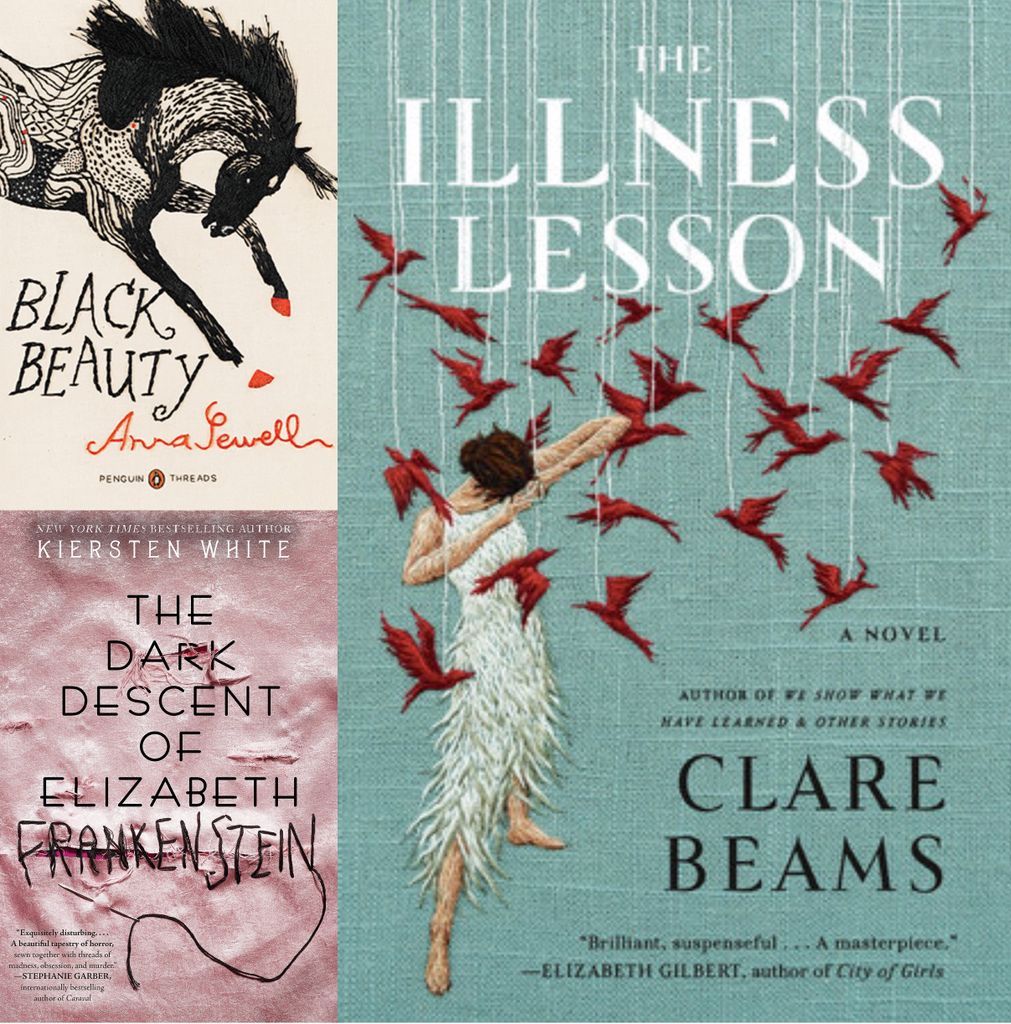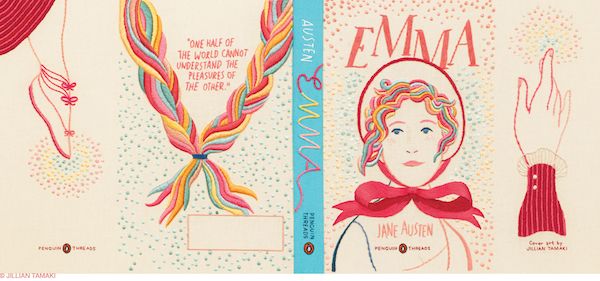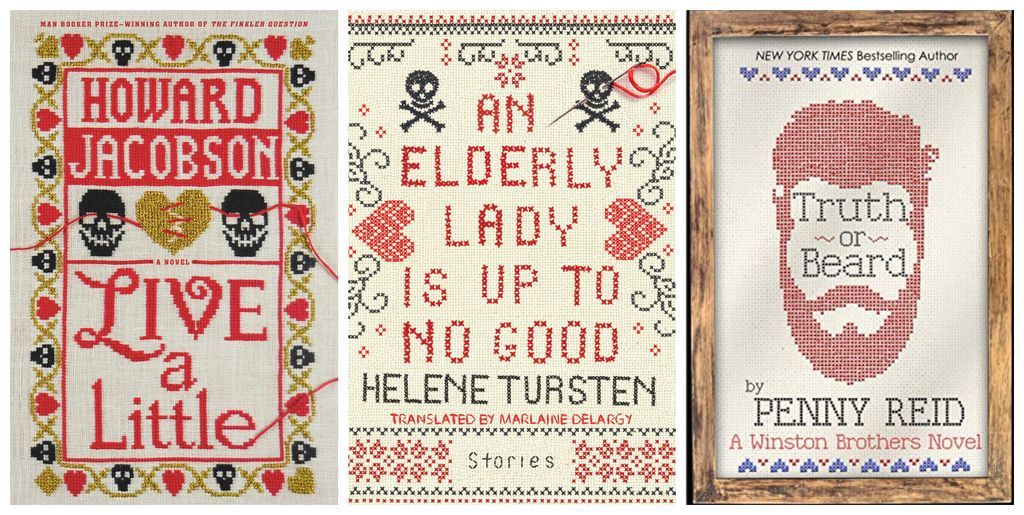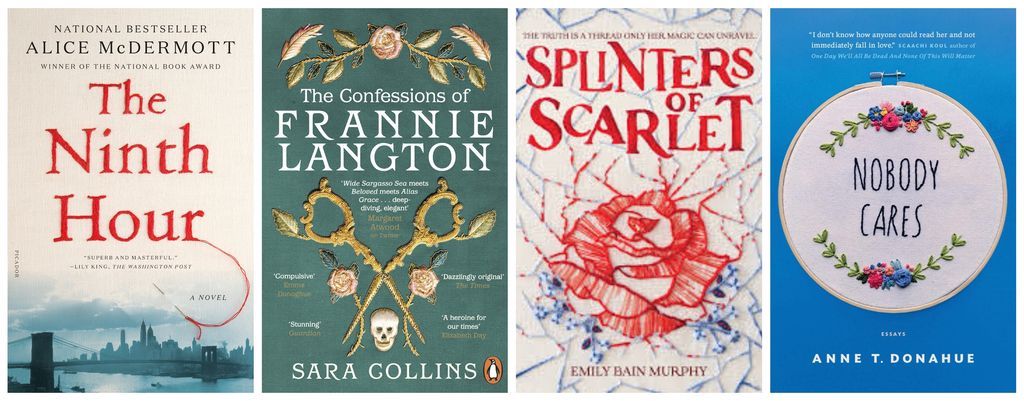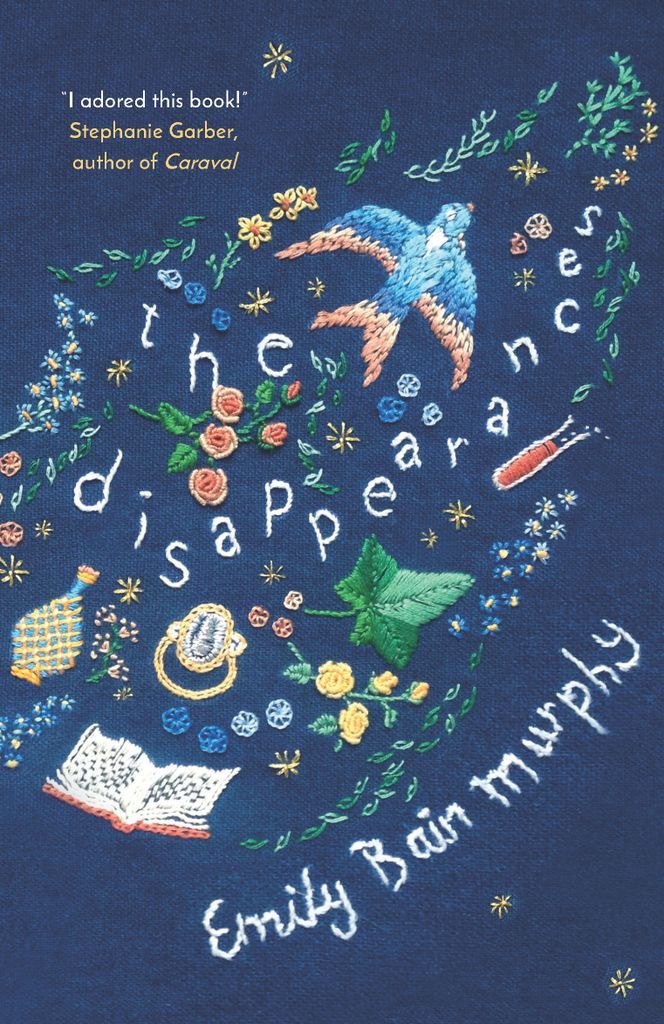Needlework has been a staple of society for literally thousands of years (The Golden Thread is a really interesting book that covers the history of fabric and thread), from necessity of making clothing to extraordinary art pieces. Fiber arts are absolutely incredible, and they are becoming more visible with online media than ever before (fiber arts never died—they just existed quietly for a while). With the rise of snarky cross-stitching and sweary crafts, traditional embroidery has also exploded into the mainstream world, and, by doing so, is being seen in places more than just on quilts and in hoops hanging on my wall. Like on book covers. Trends for book covers come and go, and the latter half of the twenty-teens (is that what we’re calling those?) saw several new design directions for book covers. But my favorite, by far, is the embroidered book cover. I’ve rounded up some of the covers that have stopped me in my tracks below. Book covers like The Illness Lesson and The Dark Descent of Elizabeth Frankenstein use fabric and needlework to tell larger parts of their story, and it gives readers a taste of what’s inside. These book covers use the fabric backgrounds and blend with modern typography and/or hand-stitched titles to create incredibly beautiful art (that, TBH, I’ve purchased because of this alone). Regina Flath, cover designer of The Dark Descent of Elizabeth Frankenstein, chose a more organic, unrefined look for this extremely terrifying cover. But what is so special about using multiple mediums to create these covers is the physical pieces of art left—author Kiersten White even took the original fabric with the stitching on tour to show off to readers!
The artist who stitched and designed the above Black Beauty is actually none other than Jillian Tamaki, illustrator and author of books like This One Summer and SuperMutant Magic Academy. Tamaki created several embroidered book covers for the Penguin Threads line, releasing classics with a new twist. The full jacket of her rendition of Emma is worth appreciating all on its own. I love that it showcases delicate needlework, reminiscent of Austen-era activities for women, while also using fun colors and unexpected images (hey, ankles!) to play up some of the more rebellious themes of the book itself.
Pivoting art directions, and in true snarky cross-stitching fashion, some covers are utilizing extremely traditional patterns to reverse it on its head for books about female serial killers or devilishly handsome bearded men. Fiber arts like stitching, knitting, and quilting, often seen as “women’s work,” has long been a method for women to express themselves in subtle, defiant ways. These cross-stitched covers for decidedly not light “women’s” reading (I can’t use enough air quotes for this) also pay homage to women who used knitting to resist Nazis and use their work to transmit codes during World War II.
The delicate work of the lacy embroidery paired with more modern phrases (such as “Nobody Cares”) evokes a truly visceral reaction to what the story will contain. By utilizing this traditional artistic form, women continue to use this work to not only create incredible pieces of art, but also deliver messages of resistance, rage, and power in a subtle, mind-bending way.
In the meantime, I’ll be over here embroidering Lizzo quotes while I listen to my latest audiobook. Interested in cross-stitching your own projects? Here’s 70 Literary Cross Stitch patterns to get your started, or you can even cross-stitch your own bookmarks!
